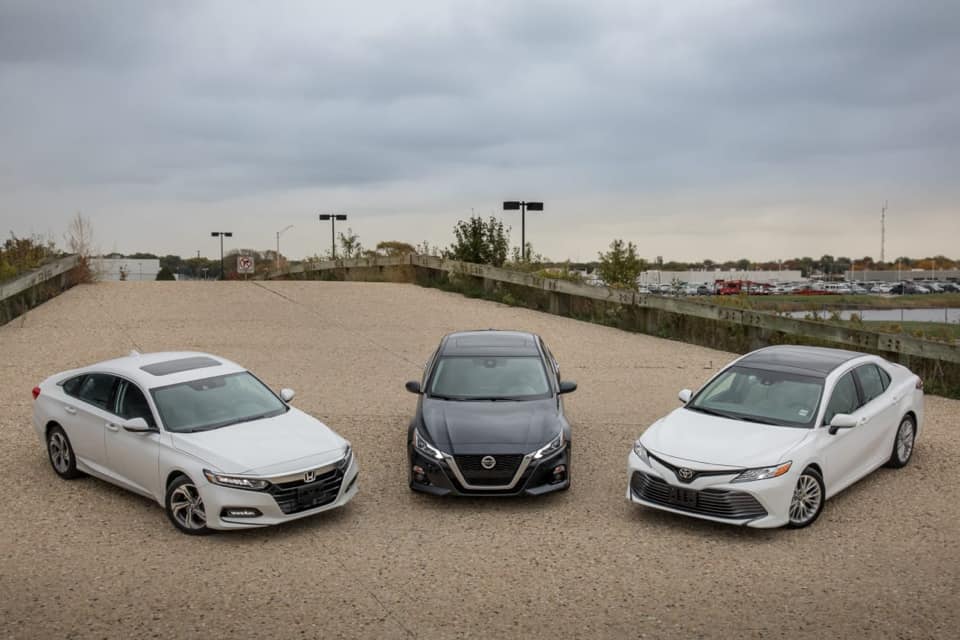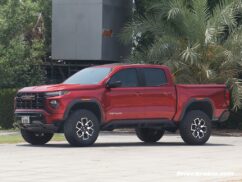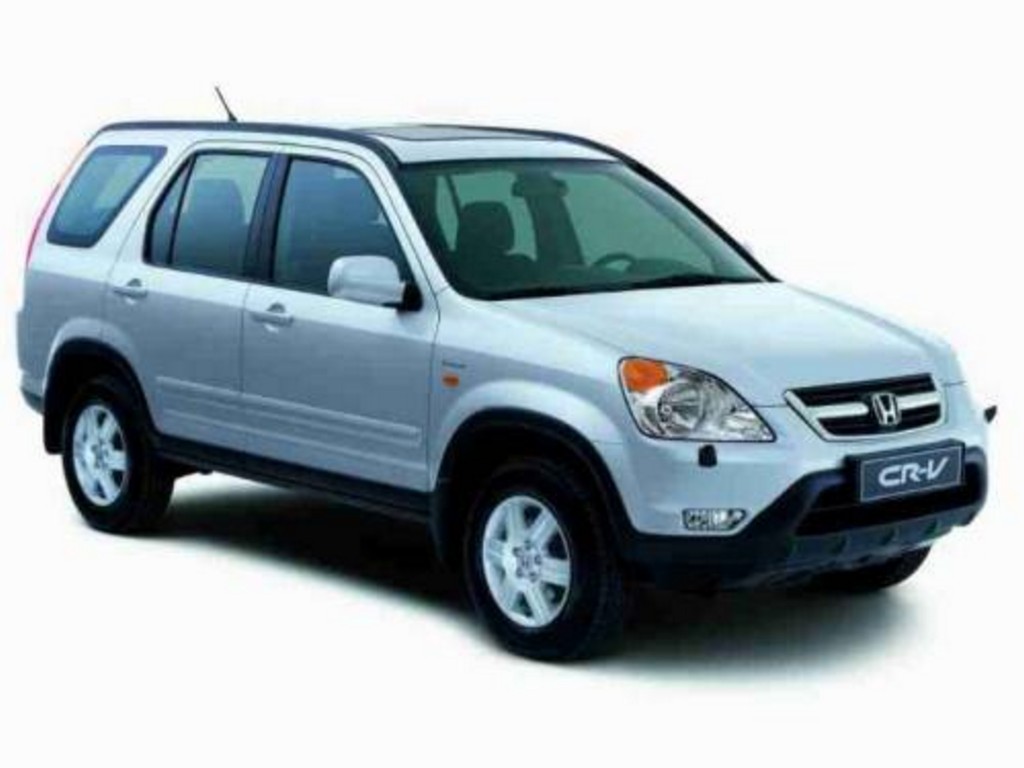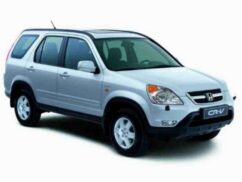2002 Honda CR-V

| The Good: – Reliable and solidly built – Roomy interior – Easy to park |
The Bad: – Hard cabin plastics – Needs more power – Not a true offroader |
The second-generation CR-V was all-new for the 2002 model year and remains one of the most popular compact sport-utility vehicles on the road, offering a unique blend of SUV versatility, top level safety performance, car-like handling and Honda quality. The Honda CR-V is powered by a 2.0-litre, 16-valve, DOHC 4-cylinder i-VTEC engine producing 150 hp and 190 Nm of torque. Fuel economy is pretty good for 4×4, especially with the 5-speed manual. A 4-speed auto is optional.
The CR-V utilizes a 4-wheel independent suspension system that employs a Toe Control Link MacPherson strut front suspension for exceptional handling, ride quality and packaging efficiency. In the rear, the CR-V is equipped with a reactive compact double wishbone suspension that helps provide additional cargo space.
Agile is the ideal description of the CR-V’s suspension tuning. There is body roll on turn-in, but not too disconcerting. In twisty roads, it stuck well in the corners. With a decent amount of body roll, the Honda gently transfers weight without flopping over, as other 4WDs tend to do. Heading off into the desert is possible in the CR-V, but with only 8.25 inches of ground clearance, it’s best to stay off the big dunes.
Safety features on the CR-V include advance dual-stage driver and front passenger airbags and seatbelt pre-tensioners.
For added safety, the lower front side frame and lower bumper beam have been specially engineered to engage the structural elements of cars, trucks and SUVs in the event of a crash. These advanced features helped the CR-V earn the highest rating of five stars in USA from the National Highway Traffic Safety Administration (NHTSA) for both front and side impacts.
The front seats are excellent. In most measures of interior room, the CR-V beats its competition. More surprising than the front-passenger accommodations is the space and comfort provided by the CR-V’s rear seats. The rear bench is neither too soft nor too hard, and allows passengers to travel for more than a few minutes without getting numb-reared or fidgety. All three rear positions have three-point belts and head restraints, something not all SUVs offer.
The cargo area of the CR-V measures a generous 72.0 cu. ft. With the fold-and-tumble rear seats stowed, the CR-V can accommodate two full-size mountain bikes with no difficulty. The 60/40 split rear seats offer six inches of fore and aft travel to maximize either cargo or passenger space. The large rear cargo floor also doubles as a portable picnic table with folding legs. In front, the center console mounted storage area is now large enough to accommodate music CDs.
The CR-V is offered in well-appointed 4WD trim levels. All models include dual mirrors, intermittent front and rear window wipers and washers, air conditioning with Micron Air-Filtration, power windows with auto down and auto up driver’s window, power door locks, floormats, engine immobilizer and anti-theft system, cruise control, two-texture seating surfaces, sunglass holder and rear coat hooks.
The basic RVi trim level incorporates an AM/FM/cassette player with four speakers. The top RVSi trim includes an AM/FM/cassette player with six speakers, a power moonroof, foglights and keyless entry. Honda’s Real Time’ 4WD is standard on all models.
The CR-V is a practical alternative to a full-size 4WD, being easy to maneuver in traffic and offering good fuel economy. But passing on the highway is an annoyance due to its low power output. It is offered with the Accord’s 2.4-litre engine in some markets, but has to make do with the 2.0L over here. Plus it’s not a true offroader. However, it has proven to be as reliable as any other Honda, with strong resale prices, and would be a good buy for a small urban family.












There are no comments. Be the first!